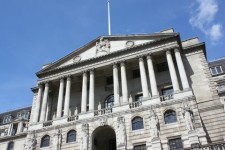Archive for August, 2016
Wednesday, August 31st, 2016
 South Africa’s biggest private fixed-income money manager will stop lending money to six of the country’s largest state companies because it is concerned about how they are being run, government infighting and threats to the independence of the finance ministry.
South Africa’s biggest private fixed-income money manager will stop lending money to six of the country’s largest state companies because it is concerned about how they are being run, government infighting and threats to the independence of the finance ministry.
Futuregrowth Asset Management, which has about 170 billion rand ($11.7 billion) in assets, shelved plans to lend more than 1.8 billion rand to three state companies on Tuesday (August 30), Chief Investment Officer Andrew Canter said from Cape Town on Wednesday (August 31), without giving more detail.
The fund manager will only resume offering loans and rolling over existing debt once it has determined that what it sees as proper oversight and governance at the companies have been restored.
(more…)
Tags: ava trade, rand, South Africa, usd
Published in Currencies, News, Political, Uncategorized, trading | No Comments »
Thursday, August 25th, 2016
 Sterling traded close to a three-week high against the dollar on Thursday (August 25) and was on track for its best week in six, with worries over the economic impact of Britain’s vote to leave the European Union easing a little after recent better-than-expected data.
Sterling traded close to a three-week high against the dollar on Thursday (August 25) and was on track for its best week in six, with worries over the economic impact of Britain’s vote to leave the European Union easing a little after recent better-than-expected data.
The pound was also on track for its best week in six weeks against the euro, having hit a two-week high against the single currency on Wednesday (August 24).
Short positions on sterling had reached a record high of 94,238 contracts in the week to August 16, and traders said many speculators had this week been unwinding bets and booking profits, which had helped lift the currency.
(more…)
Tags: Brexit, EUR/GBP, European Union, GBP, GBP/USD, Sterling
Published in Currencies, Euro, GBP, News, Political, Uncategorized | No Comments »
Thursday, August 18th, 2016
 The yen strengthened beyond 100 per dollar for a second time this week as the U.S. currency’s bid to break out from a three-month low stalled after Federal Reserve minutes indicated officials were divided over the urgency to raise interest rates.
The yen strengthened beyond 100 per dollar for a second time this week as the U.S. currency’s bid to break out from a three-month low stalled after Federal Reserve minutes indicated officials were divided over the urgency to raise interest rates.
A gauge of the dollar has fallen more than 5 per cent this year as investors bet the Fed will raise interest rates at most once this year, compared with policy makers’ forecasts at the start of 2016 for four increases.
That means the U.S. central bank is less likely to diverge from the Bank of Japan and European Central Bank, which are boosting stimulus to spur flagging growth.
(more…)
Tags: bank of japan, central, Federal reserve, japanese yen, usd, USD/YEN
Published in Central Banks, Currencies, Dollar, News, Uncategorized, Yen, usd | No Comments »
Thursday, August 11th, 2016
 New Zealand’s dollar surged to the highest since May 2015 after traders deemed the central bank’s decision to cut borrowing costs was insufficiently dovish amid the global ardour for yield spurred by unprecedented global monetary easing.
New Zealand’s dollar surged to the highest since May 2015 after traders deemed the central bank’s decision to cut borrowing costs was insufficiently dovish amid the global ardour for yield spurred by unprecedented global monetary easing.
The kiwi climbed against all of its 16 major counterparts after the Reserve Bank of New Zealand cut its official rate to a record, aping the reaction of its Australian counterpart when officials there lowered borrowing costs earlier this month.
Some investors had been looking for a more aggressive easing signal from the central bank, which indicated it would cut rates at least once more to boost weak inflation. The US dollar advanced against the euro after last week’s better-than-expected jobs data bolstered a view that the Federal Reserve is among few central banks in developed economies whose next policy move will be to tighten.
(more…)
Tags: australian dollar, Kiwi, New Zealand, New Zealand dollar, RBNZ, Reserve Bank of Australia
Published in AUD, Central Banks, Dollar, News, Uncategorized, usd | No Comments »
Tuesday, August 2nd, 2016
 Speculators that are the most bearish on sterling in nearly 25 years may be vindicated by a report published on Monday (August 1) showing Brexit is probably hitting Britain harder than markets previously envisaged.
Speculators that are the most bearish on sterling in nearly 25 years may be vindicated by a report published on Monday (August 1) showing Brexit is probably hitting Britain harder than markets previously envisaged.
Sterling declined versus most of its 16 major peers as the data showed UK manufacturing shrank more than initially forecast in July.
Hedge funds and other large speculators ran the biggest net short positions, or bets on the currency’s decline, since records began amid speculation that the Bank of England will cut interest rates for the first time in more than seven years on Thursday, August 4 to head off the risk of recession.
(more…)
Tags: bank of england, BoE, Brexit, eu, EUR/GBP, GBP/USD, pound sterling
Published in Central Banks, Currencies, Dollar, Euro, GBP, News, Political, Uncategorized, usd | No Comments »
 South Africa’s biggest private fixed-income money manager will stop lending money to six of the country’s largest state companies because it is concerned about how they are being run, government infighting and threats to the independence of the finance ministry.
South Africa’s biggest private fixed-income money manager will stop lending money to six of the country’s largest state companies because it is concerned about how they are being run, government infighting and threats to the independence of the finance ministry.


 Sterling traded close to a three-week high against the dollar on Thursday (August 25) and was on track for its best week in six, with worries over the economic impact of Britain’s vote to leave the European Union easing a little after recent better-than-expected data.
Sterling traded close to a three-week high against the dollar on Thursday (August 25) and was on track for its best week in six, with worries over the economic impact of Britain’s vote to leave the European Union easing a little after recent better-than-expected data. The yen strengthened beyond 100 per dollar for a second time this week as the U.S. currency’s bid to break out from a three-month low stalled after Federal Reserve minutes indicated officials were divided over the urgency to raise interest rates.
The yen strengthened beyond 100 per dollar for a second time this week as the U.S. currency’s bid to break out from a three-month low stalled after Federal Reserve minutes indicated officials were divided over the urgency to raise interest rates. New Zealand’s dollar surged to the highest since May 2015 after traders deemed the central bank’s decision to cut borrowing costs was insufficiently dovish amid the global ardour for yield spurred by unprecedented global monetary easing.
New Zealand’s dollar surged to the highest since May 2015 after traders deemed the central bank’s decision to cut borrowing costs was insufficiently dovish amid the global ardour for yield spurred by unprecedented global monetary easing. Speculators that are the most bearish on sterling in nearly 25 years may be vindicated by a report published on Monday (August 1) showing Brexit is probably hitting Britain harder than markets previously envisaged.
Speculators that are the most bearish on sterling in nearly 25 years may be vindicated by a report published on Monday (August 1) showing Brexit is probably hitting Britain harder than markets previously envisaged.

